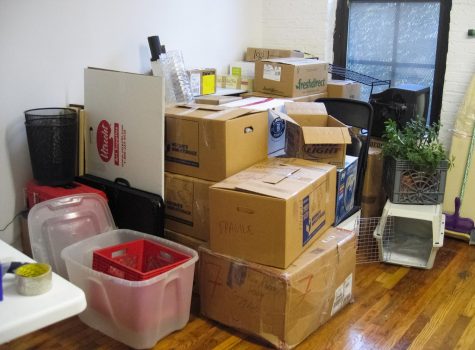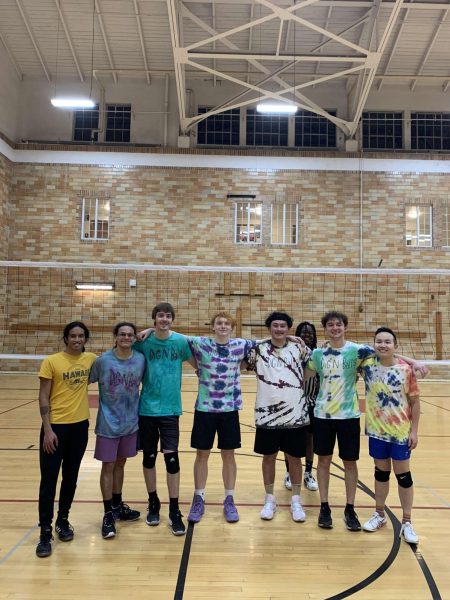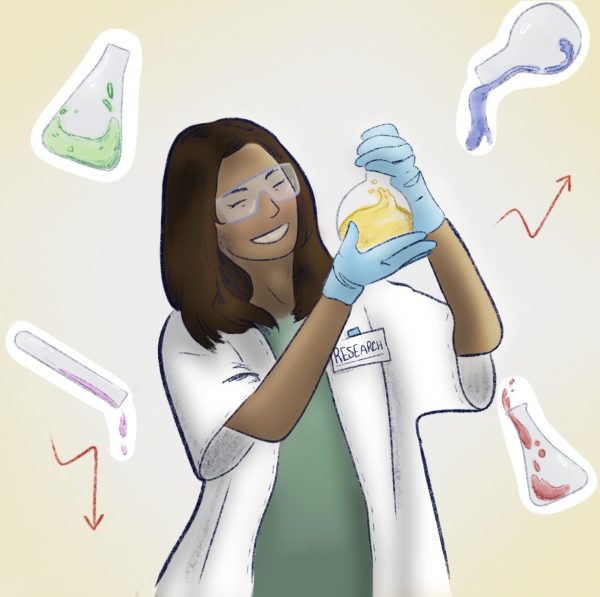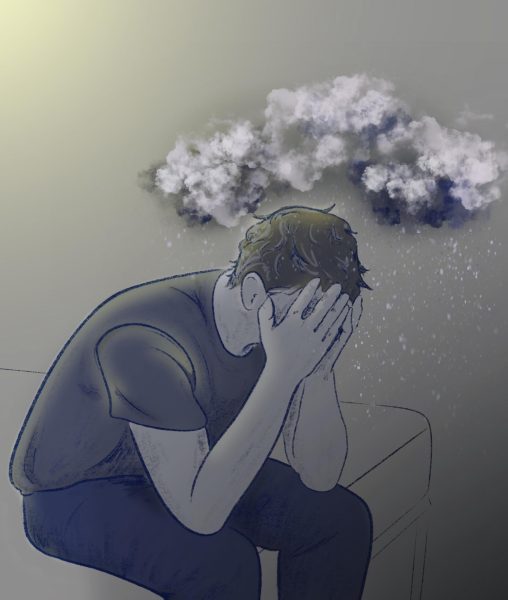An inspiring transformation
February 20, 2015
Tennessee Williams once said, “We all live in a house on fire, no fire department to call; no way out, just the upstairs window to look out of while the fire burns the house down with us trapped, locked in it.”
Williams nailed it; everyone is imprisoned by something.
Frequently, we weather the inferno, knowing that our circumstances will soon change. But most of the time, our woes are merely embers that can be withstood long-term.
However, there are rare, combustive instances that warrant leaping from the second story.
Merriam-Webster defines the word transgender as “of, relating to, or being a person who identifies with or expresses a gender identity that differs from the one which corresponds to the person’s sex at birth.”
The word is often explained as ‘being trapped in someone else’s body,’ and it is a fire too central to our existence to endure.
This week, I talked to two trans women who opened both the aforementioned window as well as my eyes. After many years, they bravely dove toward the lives they were meant to lead.
Bre Campbell, community specialist at the University of Michigan Sex Lab, was born male. Campbell knew she wanted to be a woman from the age of three, but transitioned at the age of 24.
Ahya Taylor, recent graduate of Wayne State University with a degree in harp performance, transitioned her sophomore year of college. Last year, Taylor told her story in Barneys New York’s spring ad campaign alongside 16 other transgender models and their families and friends.
Taylor and Campbell both explained their transitions as a matter of psychological survival.
“I wasn’t able to articulate and express my true gender. Even when I did, I was met by a lot of opposition. I could not psychologically function continuing as male,” Taylor said.
Similarly, Campbell, Men who have Sex with Men outreach worker at the Horizons Project at the Wayne State University School of Medicine, said that her transition was the first time she had felt happy after a 20-year battle with depression.
Physically, both women were more than ready to transition.
“Picture being away from home for a very long time and you finally get to a point where you make it,” Taylor said.
Campbell explained, “Once I transitioned, I kept thinking ‘Why didn’t I do this sooner?’”
However, familial and situational hurdles proved trying from the time of contemplation through making their transitions.
“The biggest thing that prevented me from transitioning was how my mother was going to react to it,” Campbell said. “My mom is my best friend. Once I realized my mom was going to support me, everything else didn’t matter.”
Campbell’s mother initially struggled to accept her daughter’s transition, but now is very supportive.
Taylor’s family took longer to come to terms. They ostracized her, not speaking to her for months at a time.
Aside from family support, Taylor’s transition can be distinguished by its audience. Specifically, she felt very visible.
“A lot of people from my high school went to Wayne State,” she said. “There was this daily feeling of being ostracized. I transitioned in front of everyone, being on a physical campus. It was really difficult.”
But Taylor pushed onward during the months of her transition.
“I emailed all my professors saying that my name might not match what is on the roster,” she said. “And it was like ‘that was that.’”
That said, Taylor regards the mental aspect of transitioning is a “lifelong journey.”
“I had to constantly remind myself that I am a human being deserving of respect and adequate healthcare,” Taylor said. “I had to remind myself that I am not a science experiment and not an afterthought.”
Campbell’s primary frustrations came from the outside.
“Honestly, if I could go back and do it differently, I would like more support from people who aren’t related to me in any sense, but I have to deal with that on a regular basis,” she said.
Campbell didn’t understand how hard it was going to be for her to gain employment or secure housing. After applying for job positions, she received a couple calls back saying she lied on her applications. Similarly, while looking for apartments, she was denied housing.
Campbell said that while looking at a property, the woman showcasing the space was excited to have her move in. When it came time to process the paperwork, things changed.
“Once she saw my legal name on a document, she basically said she couldn’t process my information.”
Across the country, trans men and women face enormous barriers to leading the normal life they transitioned for. Between medical care, social stigma and legal hurdles, they can be left in a state of limbo.
In many states, changing paperwork is only possible with reassignment surgery.
“Every trans person is different and every trans person does not require surgery,” Taylor said. “The inability to change paperwork puts trans people in a lot of danger. I could technically be fired for being trans.”
The same rings true for Campbell and others in Michigan. Although she possesses female identification, the rest of her documentation, such as her birth certificate and Social Security card identify her as male.
“People are entitled to identity,” Taylor explained. “They feel entitled to know who we ‘really are.’”
She and Campbell both discussed a pervasive misconception that trans people are trying to “trap or trick” cisgender individuals into thinking they’re someone they really aren’t.
“I get really irritated that men think that trans women are tricking them.” Campbell said. “We’re just living our lives.”
Notice the words “our lives,” and not yours.
“We don’t want to be you,” Taylor said. “We just want to be ourselves and not feel shame.”
That’s what it boils down to: the desire to simply exist as they are without pushback.
It is merely being able to chase one’s personal happiness and life mission. It is no more than craving freedom and the legal entitlements that everyone deserves.
To put it in perspective, what these women and others like them want is to claim the inalienable rights this country promised its citizens in 1776. That is all.
For those that can’t or won’t understand that, I urge you to do some research of your own before forming any sort of opinion. Reach out to GIESORC on campus or look online if you don’t feel comfortable meeting someone in person.
Visit the It Gets Better project and hear their stories. Spend time learning the appropriate vocabulary to refer to LGBTQIA people and others that fall outside the realm of what American society deems “normal.”
You weren’t born in a burning house; count your blessings. Be an ally and do your part in putting out the fire.
















